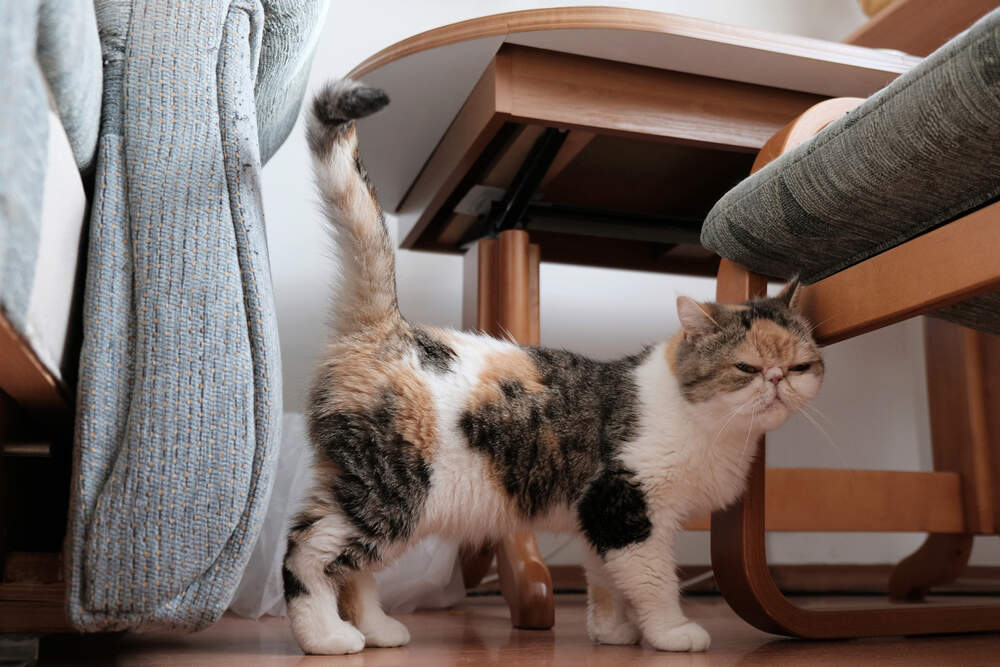Male cats may spray after being fixed, but the behavior is less likely and reduced in intensity. When a male cat is neutered, the hormonal changes can help reduce the urge to mark territory, although individual cats may still display spraying behavior.
However, the frequency and intensity are typically diminished, making it less troublesome for cat owners. Sprayings may occur occasionally, but it is not as common or persistent as with intact males. Neutering can greatly decrease spraying tendencies in male cats and is recommended for pet owners looking to control this behavior.
Common Misconceptions About Neutered Male Cats Spraying
Male cats may continue to spray after being neutered due to various factors. Neutering doesn’t always eliminate spraying behavior. Understanding these factors is important in addressing the issue. Cats spray to mark their territory, to communicate, or due to stress or medical conditions.
Spraying can be influenced by dominance disputes, changes in the environment, or the presence of other cats. It’s a misconception that neutered male cats will never spray again. Neutering reduces spraying in some cats, but it may not completely eliminate the behavior.
Therefore, it’s essential to debunk the myth that neutering guarantees the end of spraying. By considering the underlying causes and implementing appropriate measures, such as behavioral modification techniques or medical treatments, male cats can be helped to reduce and control their spraying behavior.
Why Neutered Male Cats Still Spray And How To Prevent It
Neutering can reduce spraying behavior in male cats, but it doesn’t always eliminate it completely. Hormones play a significant role in spraying, even after castration. Understanding this can help prevent it. Look out for signs such as urine marking, spraying on vertical surfaces, and a strong odor.
Territorial marking is natural, but it can be problematic indoors. To tackle this issue, provide multiple litter boxes, create a comfortable environment, and use pheromone sprays. Regularly clean soiled areas with enzymatic cleaners to eliminate odors. Additionally, neutering at an early age can help prevent spraying behavior.
Being proactive and ensuring a stress-free environment can effectively manage spray marking in neutered male cats.
Effective Solutions To Prevent Spraying In Neutered Male Cats
Spraying behavior in neutered male cats can be prevented by implementing effective solutions. This includes making environmental modifications to create a safe and stress-free space for your cat. Utilizing pheromone products and deterrents can also help discourage spraying. Consistency and positive reinforcement in training are crucial aspects to address this behavior.
By following these strategies, you can successfully prevent spraying in neutered male cats.
Tips For Successful Neutralization Of Male Cat Spraying
A male cat’s tendency to spray can be neutralized successfully with proper guidance from a veterinarian or animal behaviorist. Thorough neuter surgery and post-operative care are essential for effective results. Managing stress and anxiety in neutered male cats is crucial to preventing spraying behavior.
By monitoring and modifying routine behaviors, such as providing a litter box or scratching post, owners can discourage spraying. Creating a calm and safe environment can also contribute to reducing the likelihood of spraying. With the right approach, it is possible to address male cat spraying after they have been neutered, ensuring a harmonious living space for both cat and owner.

Credit: www.comfortzone.com
Frequently Asked Questions For Do Male Cats Spray After Being Fixed
Do Male Cats Spray After Being Fixed?
Yes, male cats can still spray after being fixed. While neutering reduces the chances of spraying, it doesn’t guarantee that they won’t continue to do so. Hormonal changes and territorial instincts are common reasons for spraying. Consult with your veterinarian for tips on managing or reducing spraying behavior.
Conclusion
It is important to understand that while most male cats do tend to stop spraying after being neutered or fixed, there are cases where some still exhibit this behavior. This can be due to a variety of reasons such as previous habits, environment, or underlying medical conditions.
It is always advisable to consult with a veterinarian if your male cat continues to spray after being fixed to rule out any potential health issues. While there are various strategies and techniques that can be employed to help curb spraying behavior, including providing a clean litter box, using pheromone sprays, and offering environmental enrichment, it is crucial to remember that each cat is unique and may require individualized solutions.
By taking the time to understand your cat’s needs and providing a supportive environment, you can help ensure a happy and spray-free life for your furry friend.



